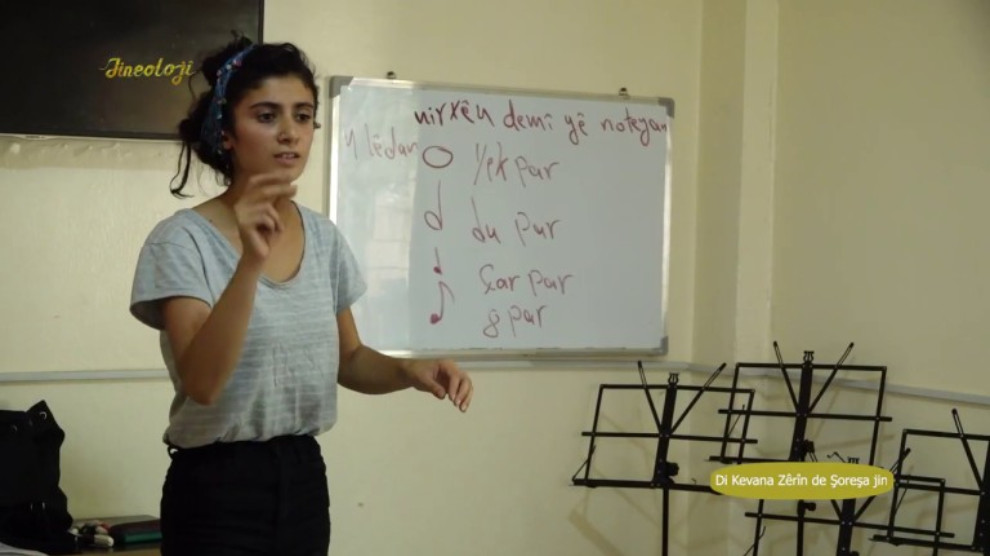Young women and revolution in arts and culture
Kevana Zerin is one of the arts and cultural institutions for women in North and East Syria working for the empowerment of women through self-knowledge, culture and art.
Kevana Zerin is one of the arts and cultural institutions for women in North and East Syria working for the empowerment of women through self-knowledge, culture and art.

Art and culture are the soul of a society and one of the foundations of its preservation. Through them, it finds its expression, becomes alive and passes on its knowledge from generation to generation. Women play an important role in preserving the cultural and artistic heritage of each society.
The revolution in Rojava / in North and East Syria, a revolution for a free and democratic society based on women's liberation, gave among others the Kurdish people their right on their own language, the free development of its art, culture and history, which was previously completely forbidden to them under the Syrian regime.
Institutions and committees for art and culture were established in various places throughout Rojava. Many women have started to participate in artistic and cultural activities and with their work have started to honour the spirit of resistance among others of the Kurdish people and to promote and protect the ethical and aesthetic values of the society.
Kevana Zerin is one of the arts and cultural institutions for women in North and East Syria for the empowerment of women through self-knowledge, culture and art. It is a project that cultivates traditions and breathes new life into them by shaping the future from the strong roots of the past.
Throughout North and East Syria, Kevana Zerin has launched projects, founded committees, organised conferences and established numerous centers. These centers provide women with cultural and artistic education and courses on the development of the Kurdish language and literature. The aim of these courses is to enrich the mosaic of Syrian languages and cultures through art, to fight against the capitalist exploitation of art and culture and to revive it.
Kevana Zerin Qamislo is run by a commune of young women who are transforming their lives and how they see themselves in the process of this work. In this video interview by Jineoloji, with English and Arabic subtitles, they explain their lives, how things have changed for them, and what they want for young women of the future.